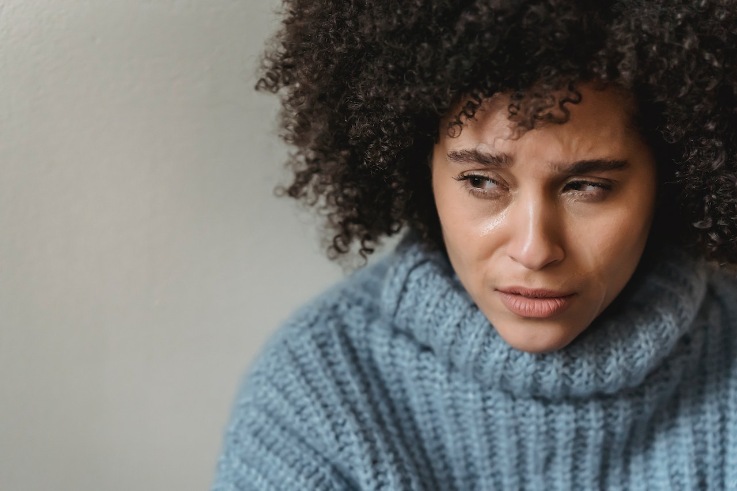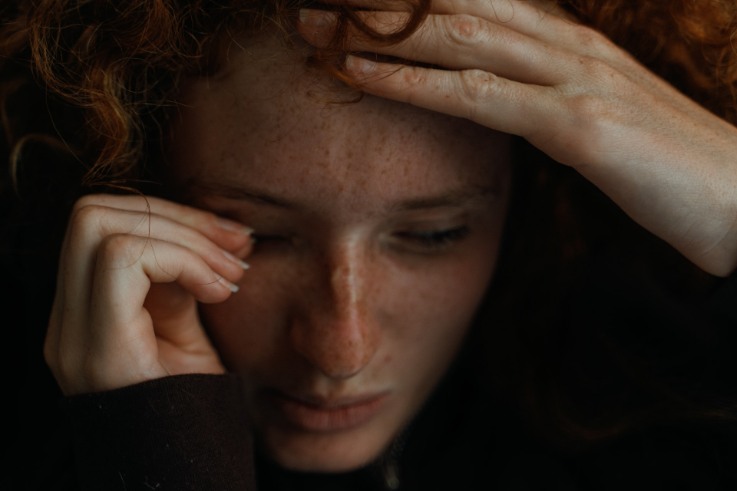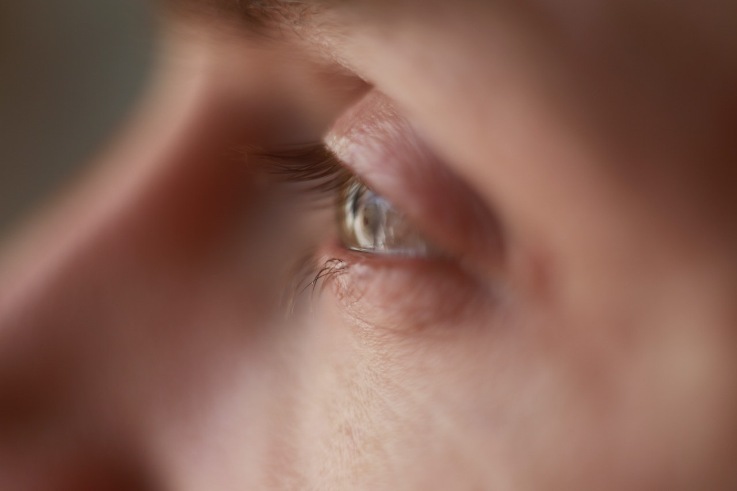While a good cry every once in a while can help with both stress relief and eye health, there’s no hiding from the fact that spilling tears can have a less-than-desirable impact on your appearance.
Puffy eyes, a blotchy complexion, swelling, inflammation – these are all commonly experienced after a person has been crying. However, does crying affect skin aging too? Can crying cause wrinkles to appear on your face prematurely? Read on to find out!
Contents
- Is Crying Bad for Your Skin? Here are the Side Effects of Crying Too Much on Eyes & Skin
- Does Crying Age You? Does Crying Cause Wrinkles Under Eyes?
- Does Crying Cause Acne?
- Wondering Why You Have Red Dots Around Eyes After Crying? A Closer Look at Petechiae After Crying
- Why Does My Face Burn When I Cry? Why Do Tears Make My Face Itch?
- Why Do My Eyes Turn Red When I Cry?
- Why Does Your Face Get Red When You Cry? Why Do I Have a Blotchy Face After Crying?
- Why Do My Lips Swell When I Cry?
- Are Tears Good for Your Skin? Do Tears Make Your Face Clear? Here are the Benefits of Crying for Skin
- If Crying Isn’t the Cause, Then Why Do I Have Lines Under My Eyes?
- FAQ
- Q: Does crying age your skin?
- Q: Does crying a lot affect your skin?
- Q: Is crying good for your skin?
- Q: Why do I look pretty after crying?
- Q: Why do I have wrinkles under eyes at 20?
- Q: Why do I have under eye wrinkles at 25?
- Q: What are the two wrinkles types?
- Q: Is it possible to get broken blood vessels on face from crying?
- Q: Do dermatologists recommend Botox for under eye wrinkles?
- Q: Why do I have forehead wrinkles at 18?
- Q: How do I get rid of eye smile wrinkles?
- Q: What are normal wrinkles at 30?
- Conclusion: So, Does Crying Give You Wrinkles?
Is Crying Bad for Your Skin? Here are the Side Effects of Crying Too Much on Eyes & Skin
Surprisingly, crying can have both a positive and a negative effect on your skin. Let’s start by taking a look at how those tears can be detrimental to your appearance:
Does Crying Age You? Does Crying Cause Wrinkles Under Eyes?
You’ll be happy to know that the act of crying isn’t usually a cause of wrinkles. Sure, you may notice some dynamic lines appearing as your face contorts while you’re upset, but these should disappear again once you’re more relaxed.

That said, the stress that often accompanies crying is definitely a huge wrinkle trigger. Whenever you feel stressed or anxious, your body releases a hormone called cortisol, which plays havoc with the protein fibers that keep your skin looking firm and young.
Chronic stress leads to premature skin aging, so while the occasional crying session won’t wrinkle your skin, the emotions behind those tears could cause aging-related issues in the long run.
Does Crying Cause Acne?

Just like when it comes to wrinkles, crying doesn’t cause acne, but the stress that makes a person cry can very easily trigger a breakout.
This is exacerbated by the fact that people often rub their eyes and face after they’ve been crying. This irritates the skin and spreads sebum around, increasing your chances of a breakout.
Wondering Why You Have Red Dots Around Eyes After Crying? A Closer Look at Petechiae After Crying
Ever heard of petechiae? It’s a condition that refers to tiny red spots that appear on the skin and is caused by bleeding blood vessels. Both crying and stress can cause petechiae to form, usually around the eyes.
Fortunately, this petechiae trigger is temporary. It may take a few days for those dots to subside, but they’re completely harmless, so you don’t need to worry.
Why Does My Face Burn When I Cry? Why Do Tears Make My Face Itch?
The pH of human skin is between 5.5-6, while the pH of tears is around 7. As a result, long-term exposure to tears can cause irritation and an itchy face.
This is often especially noticeable in people that have sensitive skin or suffer from inflammatory skin conditions, such as rosacea.
Why Do My Eyes Turn Red When I Cry?
In order for your eyes to produce tears, they need an increase in blood flow. For this to happen, the blood vessels in your eyes need to dilate, which causes swelling, puffiness, and redness.
Of course, this is made worse each time you rub your teary eyes. The friction caused by the rubbing irritates the area, which makes it look even redder.
Why Does Your Face Get Red When You Cry? Why Do I Have a Blotchy Face After Crying?
Not only does the blood flow to your eyes increase when you’re crying, but so does the blood flow to the rest of your face, especially your nose.
As a result, this leads to redness and a blotchy appearance.

Why Do My Lips Swell When I Cry?
Again, swelling in the lips each time you cry is due to increased blood flow to the area. While some hate the visible effect of this, others actually like it, as it makes the lips look plumper and darker in color.
Are Tears Good for Your Skin? Do Tears Make Your Face Clear? Here are the Benefits of Crying for Skin
Crying isn’t all bad – there can actually be some benefits to it!

Tears contain an enzyme called lysozyme, which has antimicrobial and antibacterial properties [1]. This enzyme can potentially eliminate acne-causing bacteria from the face, which could help to prevent breakouts.
Let’s not also forget what we mentioned earlier about crying being good for stress relief. Each time you shed some tears, you’re also helping your body to expel cortisol, the stress hormone. Cortisol speeds up the skin aging process, which is how crying can sometimes have an anti-aging effect.
If Crying Isn’t the Cause, Then Why Do I Have Lines Under My Eyes?
If crying isn’t what has caused the wrinkles around your eyes, then why are they there?
Chances are, it’s due to one or more of the following factors:
- Natural aging
- Stress
- Repeated facial movements
- Sun exposure
- Exposure to heavy pollution
- Smoking
- Genetics
What to Do About Premature Fine Lines Around Eyes When Smiling or When You Squint
If you’ve been noticing premature wrinkles around your eyes, especially when you smile or squint, it’s time to turn to anti-aging skincare products.

Look for serums and creams containing retinol, vitamin C, peptides, and hyaluronic acid. These are some of the most popular ingredients in the industry for smoothing away facial creases and encouraging a younger-looking complexion.
FAQ
Q: Does crying age your skin?
Crying doesn’t age your skin, but the stress and emotions that cause you to cry can result in premature wrinkles.
Q: Does crying a lot affect your skin?
Excessive crying can dehydrate your body, which will then cause your skin to become dehydrated.
Q: Is crying good for your skin?
In some ways, crying can be beneficial to your skin. It can help to soothe breakouts while also eliminating cortisol from your body. However, it can have negative effects on the skin too.
Q: Why do I look pretty after crying?
The red flush and swollen lips that people often experience after crying can sometimes enhance a person’s appearance.
Q: Why do I have wrinkles under eyes at 20?
Wrinkles under the eyes at 20 can be due to a variety of causes, from genetics to sun damage.
Q: Why do I have under eye wrinkles at 25?
Eye wrinkles at 25 can be caused by everything from sun exposure to lifestyle habits.
Q: What are the two wrinkles types?
Wrinkles usually fall under one of two categories; dynamic, which means that they disappear once your face relaxes, and static, which refers to permanent wrinkles.
Q: Is it possible to get broken blood vessels on face from crying?
Yes, crying can lead to broken blood vessels in the face.
Q: Do dermatologists recommend Botox for under eye wrinkles?
Yes, Botox is a popular way to treat under eye wrinkles.
Q: Why do I have forehead wrinkles at 18?
Forehead wrinkles at 18 are usually caused by repeated facial expressions, such as frowning.
Q: How do I get rid of eye smile wrinkles?
A good anti-aging skincare routine will help you to get rid of wrinkles around your eyes.
Q: What are normal wrinkles at 30?
By the time you reach your 30s, it’s normal to start developing fine lines on your face.
Conclusion: So, Does Crying Give You Wrinkles?
So, is crying responsible for your wrinkles? It’s unlikely – the act of crying doesn’t usually cause the skin to permanently crease.
While there may be several other skin-related downsides to crying, this isn’t too much of a cause for concern if you only cry occasionally.
On the other hand, if, for whatever reason, crying has become a regular part of your life, then it would be worth seeking help for this – not only will long-term stress and negative emotions lead to premature aging, but it can also impact your mental health too.
References
[1] https://www.ncbi.nlm.nih.gov/pmc/articles/PMC8959614/